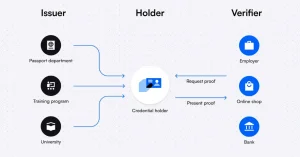
The office of the Taxpayer Advocate, also known as the Taxpayer Advocate Service, is a part of the Internal Revenue Service (IRS). It reports to the Commissioner of Internal Revenue. The Advocate serves as a person to whom taxpayers can turn for help when the Internal Revenue Service (IRS) has mistreated them. The office helps people file and appeal tax returns, and represents their interests. The role of the Taxpayer Advocate is to make the Internal Revenue Service work in the best possible manner for taxpayers.
When a taxpayer receives a letter from the IRS denying their appeal, they may need the help of the Taxpayer Advocate. They can be reached by telephone, letter, or email. Email addresses should be used for general inquiries. To get a tax advocate, you must fill out a simple form that requires information about your case. They will contact you as soon as possible. You can also email them with your case information. Make sure you include your name and address on the letter.
The Taxpayer Advocate Service will assess your request and assign you an advocate. Your tax advocate will be your main point of contact. They will provide you with their contact information, as well as timeframes for your case’s resolution. They will also keep you informed about their progress. However, the Taxpayer Advocate Service cannot guarantee results. It is possible that you will end up paying more than you owe, but it is best to avoid this route if you can help your case.
A Taxpayer Advocate Service (TAS) is an independent organization within the Internal Revenue Service. It provides free help to taxpayers who have trouble filing or receiving their refund. They can also represent businesses and individuals who cannot afford professional help. A Taxpayer Advocate can also intervene in situations when a taxpayer’s rights are being violated. The TAS will negotiate on your behalf for them. If you can’t afford a professional, contact the Taxpayer Advocate Service to get a free consultation.
The Taxpayer Advocate Service was set up to protect taxpayers from unfair IRS agents and help them avoid collection actions. Its mission is to go to bat for taxpayers and fight unfair agents. Before selecting an advocate, you need to explain to the Advocate Service the steps you’ve taken to resolve your case. You should provide dates when you had contact with the IRS, and you should be as neutral as possible. You can also provide a list of questions you’d like to be answered by your Taxpayer Advocate Service.
Taxpayer Advocate Services help taxpayers understand their rights under the federal tax code. They understand the rights and obligations of taxpayers, including the right to a fair hearing, to pay only the tax owed, and to challenge an agency decision. Oftentimes, the Tax Advocate Service can even help people with issues involving wage garnishment and a levy on their wages. In the event of a tax levy, the advocate can make the IRS reverse their decision and get the money back.



